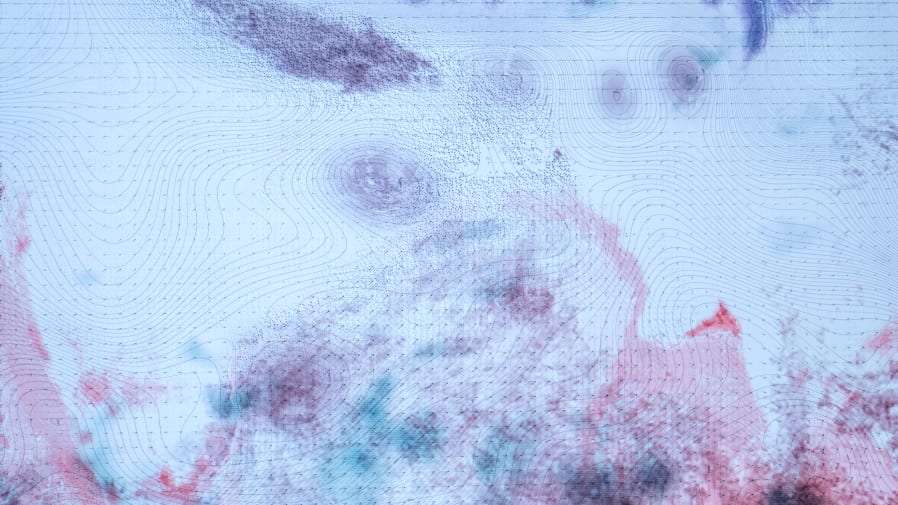The knowledge we create and share
As artists and designers, our work is about making sense of the world and our relationships in it and to it. We’re making sure that we serve our biosphere and the lives within it through our research and knowledge exchange.
What we've done so far
We've:
- identified areas of focus for our Climate Action Plan (PDF 4.8MB)
- placed tackling societal issues, such as climate and ecological crisis, at the heart of our Research Strategy (2023-2028) (PDF 427KB)
- commissioned a systems mapping research project led by 2 of our research staff, Professor Ramia Mazé and Dr. Niki Wallace, which identifies and maps ways we can build positive connections between our current activities and cultures as well as further opportunities and pathways toward a regenerative and climate just future
- partnered with the British Council to map climate action and sustainability in UK arts and culture
- commissioned a piece of research to understand how we can address biodiversity loss across our teaching, research, operations and wider community.
Research institutes and centres
Our research institutes and centres have developed pioneering research in sustainability and climate action for many years, providing leadership to creative industries and creative practitioners across a wide range of issues from circularity to sustainable design.
Centre for Sustainable Fashion provides leadership and research on sustainable fashion. The centre shapes and contributes to Fashion Design for Sustainability as a field of study, industry, and education practices.
Fashion Textiles and Technology Institute which was established to deliver sustainable innovation across the entire fashion and textiles value chain.
The Textile Futures Research Centre investigates sustainable and ethical innovations in textiles.
Research projects
Our current research projects on climate action and social sustainability are led by researchers based across our colleges and research institutes and centres. Our Knowledge Exchange projects are led by our staff, working in partnership with industry, civil society and cultural and creative organisations. These projects often involve students and graduates.
Materializing Data: Embodying Climate Change uses the visual arts to present climate data, often impenetrable to a general audience, in a way that is accessible.
Architecture After Architecture speculates on what kind of architecture might be necessary if we are to face the climate emergency.
HEREWEAR innovates with a holistic, systemic approach towards the creation of an EU market for locally-produced circular textiles and clothing made from bio-based waste.
Bio-Inspired Textiles is an interdisciplinary research using biology to help us design more sustainable textiles.
Our Future Observatory projects include a project to:
- address digital waste and lack of access to online learning within deprived communities, led by the Creative Computing Institute
- develop a model for design-led local government to achieve net zero by 2030, led by London College of Communication
- look beyond net zero goals to a regenerative fashion system, led by Centre for Sustainable Fashion.
Knowledge Exchange projects
Our Knowledge Exchange activities and research facilitate opportunities for mutual learning, collaboration and community engagement. Together with our partners, students, academics and teachers, we're able to be a driving force for social change within our institution and within our local and global communities.
- Climate Studio aims to develop an urban network of citizens, organisations and government to support collaborative place-based climate action.
- Students and staff collaborated to build a community dye garden in Stave Hill Ecological Park.
- From urban regeneration to cultural participation, see how we're empowering communities through our knowledge exchange.
- Forest School is a Knowledge Exchange project bringing students and staff from the Spatial Practices programme at Central Saint Martins together with partners including Forestry England, White Arkiteker, Colombian forest networks. Together they use the forest as a tool to explore the climate and ecological emergency.
- Industry Projects creates partnerships between companies and LCF students. Projects often involve sustainability such as the Nike Sustainable Materials Project.
See 10 ways we’re tackling climate issues through knowledge exchange and research.
Living Lab case studies
We encourage students and staff to propose and develop research, projects and interventions to address the climate emergency. These projects are supported through seed funding and support from relevant teams and staff across the university to create real-world learning and research opportunities for students and researchers, while also bringing environmental impact to our wider community.
- We commissioned a series of Re-Use Units co-designed by student Sustainability Interns and piloted a material SWAP SHOP at Central Saint Martins developed by UAL graduates in collaboration with technicians.
- We hosted Earth Day 2023, an event programme to articulate how creative communities can contribute to climate justice. The programme included over 50 artists from across our student body, staff and alumni network.
- Launched Camberwell Repair Café, a student-led effort to promote repair culture in our throwaway society.
- Adapted UCL's Laboratory Efficiency Assessment Framework to develop a carbon calculator and environmental assessment tool for our technical workshops at Central Saint Martins. The assessment is carried out by students and recent graduates working alongside technicians.
We aim to involve students in sustainability operations at UAL where possible. Students delivered ideas for the new accommodation block to contractors and to the Estates team. The students were from the Spatial Practices Programme.
Through many of our courses and their assessments students contribute to improving sustainability. An example is using the natural dyes from the Mare Street garden or creating clothes from flax grown at LCF sites.
Responsible design framework
Our Responsible Design Framework (PDF 79KB) was created by the London College of Communication Design School. It recognises the need for design education to respond to the eco-social challenges of our time and to equip design school students, academics and technical staff with the skills and values to become responsible creative citizens.
What we'll do next
We'll:
- Increase the scale and impact of our climate-related research and knowledge exchange
- Engage industry, policymakers and the public with our research
- Apply our research expertise to our own systems and operations.


